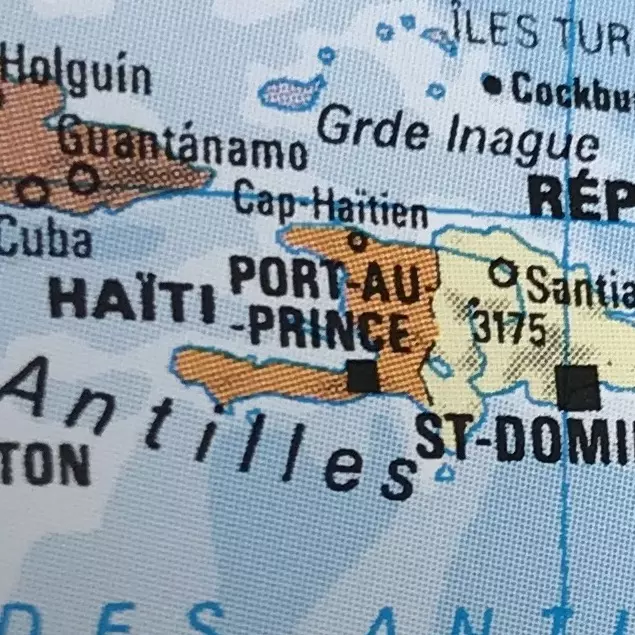After reporting over 820,000 cholera cases and nearly 10,000 deaths in Haiti, the last confirmed cholera case in the country was observed in February 2019. Three years later, on February 4, 2022, the Haitian authorities have finally celebrated the elimination of cholera and are expecting the official certificate of elimination.
Before 2010, the country of Haiti had never reported a cholera epidemic (1). That changed on October 22, 2010, when the country reported a staggering 1,526 suspected cases cholera and 138 cholera-related deaths in the Artibonite plain (2).
Although initial hypotheses suggested that the outbreak originated from ocean-dwelling Vibrio cholerae, epidemiological investigations quickly demonstrated that the cholera outbreak was rather caused by importation of the bacterium by a contingent of Nepalese soldiers that arrived in Haiti earlier that month (3). Genetic analysis further confirmed that the Vibrio cholerae strain responsible for the epidemic in Haiti was the same strain as that circulating in Nepal at the time (4). Given that a majority of the population has poor access to safe drinking water and proper sanitation facilities, waves of cholera epidemics continued in the country for the next several years, fluctuating with the seasons and rainfall (5,6).

To combat the epidemic, a nationwide response strategy was launched in 2013, which aimed to interrupt disease transmission around newly detected cases as soon as possible. With this approach, mobile rapid response teams conducted case-area targeted interventions based on real-time analyses of epidemiological data. The response teams visited the homes and nearby neighbors of all suspected cholera cases - on the same day or the day after admission to a treatment center - to identify other suspected cases, investigate cholera risk factors, and raise awareness about the disease, prevention measures and healthcare seeking behaviors to adopt. The teams also decontaminated potentially contaminated surfaces, distributed water treatment and hand hygiene supplies, and coordinated the repair of dysfunctional water supply systems. Team nurses also administered antibiotic prophylaxis to the most at-risk contacts (7). An alert-response system was also established to monitor the epidemic and guide these response efforts (8).
Some have assumed that cholera had become endemic in Haiti and that sporadic cases would always occur, citing the hypothesis that the bacterium has settled into the local aquatic environment (9). However, the last confirmed case was observed in February 2019 in the Artibonite plain (6). Since February 2019, over 6,000 stool cultures have been collected from diarrhea patients across the country, and all tests have come back Vibrio cholerae O1-negative (6). Overall, the country has reported a total of over 820,000 cases and nearly 10,000 deaths between 2010 and 2019, making it one of the most deadly cholera epidemics recorded (10,11).
The Global Task Force on Cholera Control has defined cholera elimination as “any country that reports no confirmed cases with evidence of local transmission for at least three consecutive years and has a well-functioning epidemiological and laboratory surveillance system able to detect and confirm cases” (12). On February 4, 2022, the Haitian authorities have finally celebrated the elimination of cholera in their country and are waiting for the official certificate of elimination (13).
This tragic experience however presents the opportunity to learn invaluable lessons, such as major advances in the understanding of cholera emergence and transmission dynamics. The experience also provides insight into efficient approaches to control cholera, which could be adapted and applied in other affected countries.
REFERENCES :
1. Jenson D, Szabo V. Cholera in Haiti and other Caribbean regions, 19th century. Emerging Infect Dis. 2011 Nov;17(11):2130–5.
2. Pan American Health Organization (PAHO). EOC SITUATION REPORT #1. Cholera Outbreak in Haiti [Internet]. 2010 Oct. Available from: https://www.paho.org/disasters/dmdocuments/EOC-Haiti-Cholera-SitRep-22102010ENG.pdf
3. Piarroux R, Barrais R, Faucher B, Haus R, Piarroux M, Gaudart J, et al. Understanding the cholera epidemic, Haiti. Emerg Infect Dis. 2011 Jul;17(7):1161–8.
4. Hendriksen RS, Price LB, Schupp JM, Gillece JD, Kaas RS, Engelthaler DM, et al. Population genetics of Vibrio cholerae from Nepal in 2010: evidence on the origin of the Haitian outbreak. MBio. 2011;2(4):e00157-00111.
5. Gaudart J, Rebaudet S, Barrais R, Boncy J, Faucher B, Piarroux M, et al. Spatio-Temporal Dynamics of Cholera during the First Year of the Epidemic in Haiti. PLoS Negl Trop Dis. 2013 avril;7(4):e2145.
6. Rebaudet S, Dély P, Boncy J, Henrys JH, Piarroux R. Toward Cholera Elimination, Haiti. Emerg Infect Dis [Internet]. 2021 Nov [cited 2021 Oct 21];27(11). Available from: https://wwwnc.cdc.gov/eid/article/27/11/20-3372_article
7. Rebaudet S, Bulit G, Gaudart J, Michel E, Gazin P, Evers C, et al. The national alert-response strategy against cholera in Haiti: a four-year assessment of its implementation [Internet]. 2018 [cited 2018 Feb 14]. Available from: https://hal.archives-ouvertes.fr/hal-01702685
8. Rebaudet S, Bulit G, Gaudart J, Michel E, Gazin P, Evers C, et al. The national alert-response strategy against cholera in Haiti: a four-year assessment of its implementation. bioRxiv [Internet]. 2018 Feb 5 [cited 2018 Feb 6];(preprint). Available from: https://www.biorxiv.org/content/early/2018/02/05/259366
9. Republic of Haiti, Ministry of Public Health and Population, National Directorate for Water Supply and Sanitation. National Plan for the Elimination of Cholera in Haiti 2013-2022 [Internet]. Port-au-Prince, Haïti; 2013 Feb p. 114. Available from: http://www.paho.org/hq/index.php?option=com_docman&task=doc_view&gid=20326&Itemid=270&lang=en
10. République d’Haïti. Ministère de la Santé Publique et de la Population. Centre de Documentation [Internet]. [cited 2020 Aug 23]. Available from: https://www.mspp.gouv.ht/documentation/
11. Number of reported cases of cholera [Internet]. [cited 2022 Feb 22]. Available from: https://www.who.int/data/gho/data/indicators/indicator-details/GHO/number-of-reported-cases-of-cholera
12. Global Task Force on Cholera Control (GTFCC). Roadmap 2030 – A new global strategy to reduce cholera deaths and stop cholera transmission [Internet]. [cited 2020 Feb 16]. Available from: https://www.gtfcc.org/about-gtfcc/roadmap-2030/
13. Gilles J. Trois ans sans choléra, Haïti recevra son certificat d’élimination. Loop. 2022 Feb 8;
